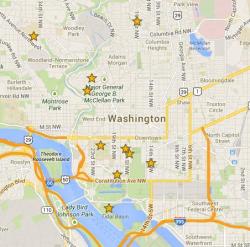On the 77th anniversary of the Attack on Pearl Harbor and the invasion of the Philippines, we remember the devastation and massive loss of lives but we also choose to remember the ultimate victory of US and Philippine forces in the Pacific. Ahead of the Battle of Leyte and the military campaign to liberate the Philippines in late 1944, young American soldiers were given this 34-page booklet, “to the Philippines”, an original copy of which we acquired this week.
“You are about to take part in one of the greatest campaigns in United States history…” is the opening line. Remembering the context – the Allied victory in Normandy still fresh (“that kind of careful preparation off in the great Allied landings in Europe”) but the fall of Bataan and Corregidor and the death of their friends equally raw – one can only imagine the passion and tension as these Americans read this booklet, their young lives at stake.
The booklet is inspiring and the military campaign is described as a matter of honor and friendship (“the Filipinos who proved their friendship in blood on Bataan”). (In today’s political climate, it is astonishing to see these words used to describe a military operation.) At times, however, the booklet is just plain wrong, echoing the norms of its period. It is sometimes infuriating, occasionally baffling, and now and then unexpectedly funny. It is a sociological and anthropological goldmine.
Some excerpts:
On “why we are going into the Philippines”: “There are a number of reasons why we are going into the Philippines. Some of them are reasons of honor, others are reasons of military science.”
On Filipinos: “You can put aside all notions of dealing with a primitive people when you go into the Philippines. The Filipinos are a people with 400 years of Christian culture behind them, first Spanish, then American. “ “The Filipino has as deep a racial pride as you yourself…”
On the “cultured college graduate”: “When you see them they may be reduced to wearing blue denim shorts—and no shoes—but they are leaders who should be accorded the same greeting you would to your high school teacher, or pastor, or the District Court Judge back home. These men speak English probably a little more correctly than we do, but their accent is different—just as you can tell whether an American comes from Kansas, Texas, Alabama, or Boston by his accent.”
On the “non-professional Filipino”: He also speaks English, and while he may not be as polished as the professional men he is no more a savage than your Uncle Hatfield who works in the feed and grain store.”
On humor: “The Filipino has a pretty good understanding of American humor…But the one thing which no Filipino is likely to appreciate is the sarcastic type of humor. Sarcasm does not come natural to the Filipino. Avoid it when talking to him.”
On Philippine women: “She is accustomed to all the Emily Post courtesies—such as “being helped across the street” and so forth—and she is not likely to misinterpret them; but that’s as far as it goes! With the girl of good family, the “Hi, Babe” approach is NOT appreciated.”



Great post. Very interesting. Can you show all the pages?
LikeLike